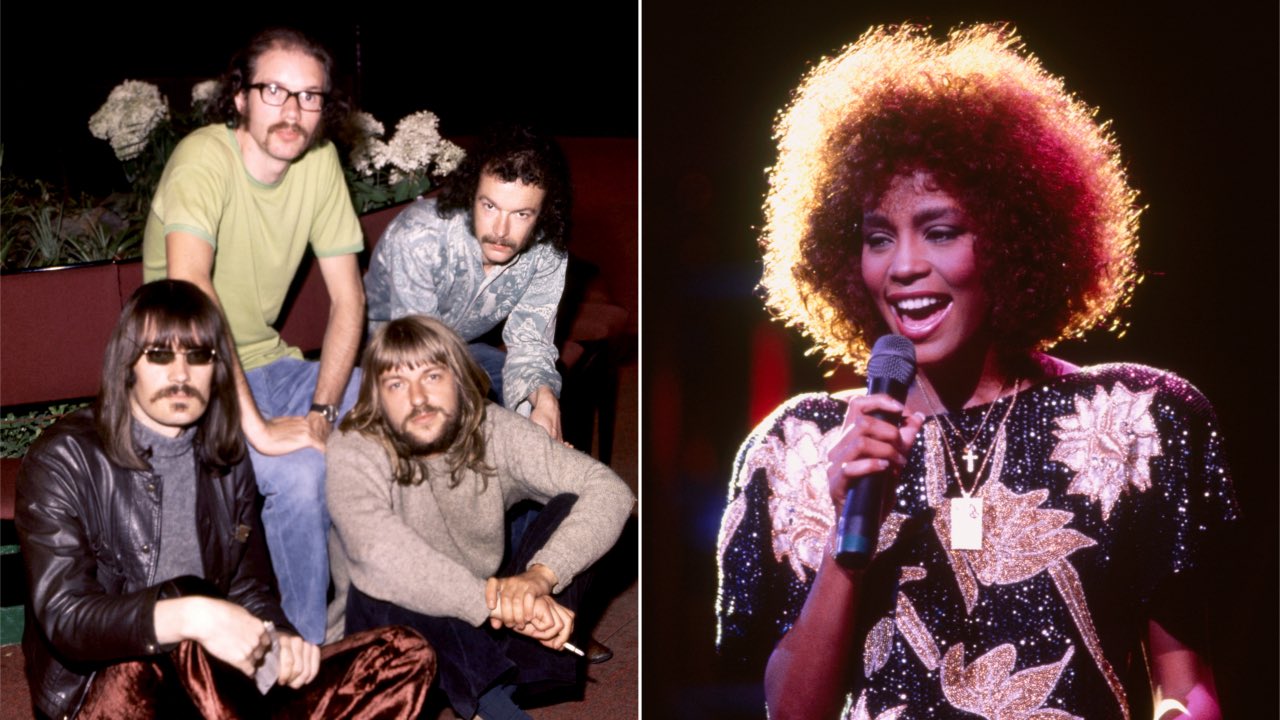“The interesting thing is that she copies Robert Wyatt’s phrasing exactly”: the weird connection between Whitney Houston and the 60s UK prog scene
How an obscure 60s prog-jazz cover gave Whitney Houston her big break

On the surface, there’s little to connect late pop/R&B superstar Whitney Houston with the proto-prog Canterbury Scene that emerged from the UK in the late 1960s and early 70s. Yet it would be a cover of a song by prog/jazz pioneers The Wilde Flowers which gave Houston her break as a vocalist years before she shot to fame.
Formed in Canterbury in 1964, The Wilde Flowers sowed the seeds for a very English strain of progressive rock, mixing jazz, blues and humorous and sometimes whimsical lyrics. Their career lasted little more than three years, and while they gigged regularly and wrote several original songs, they never released anything during their lifetime. One of the songs that emerege from their short career was Memories, a haunting, piano-led ballad written by bassist Hugh Hopper and sung by drummer Robert Wyatt (Hopper later said it was just the second song he ever wrote).
After The Wilde Flowers split in 1967, their past and current members went on to form such psych/prog luminaries Caravan, Camel and Soft Machine, while Wyatt and original vocalist Kevin Ayers went onto to become cult solo artists. It was Wyatt who released the first official version of Memories, covering it as the B-side to his 1974 single I’m A Believer, itself a cover of The Monkees hit (a demo of Memories by Soft Machine had emerged two years earlier on the unofficial outtakes compilation Faces And Places Vol. 7).
It was Wyatt‘s version that inspired another cover of Memories, this one by the New York art rock band Material. Founded in 1978 by producer/bassist Bill Laswell and featuring keyboard player Michael Beinhorn, they were part of the Big Apple’s arty post-punk milieu.
Material’s third album, 1982’s One Down, saw Laswell and Beinhorn working with a rotating cast of musicians and vocalists, including ex-Labelle singer Nona Hendryx, Chic guitarist Nile Rodgers and Rolling Stones backing vocalist Bernard Fowler. Tucked away towards the back of the album was a cover of Memories, featuring an unknown 19-year-old singer named Whitney Houston.
“[Ex-Henry Cow member and sometime Robert Wyatt collaborator] Fred Frith was working with Bill Laswell at the time and he introduced Robert’s version to Laswell,” said Hugh Hopper, who wrote the original song, in an interview with The Vermont Review.
Music ran in Houston’s veins. Her mother was gospel singer Cissy Houston and her aunt was Dionne Warwick. She had sung back-up for Chaka Khan and Lou Rawls, but Memories would be her very first lead vocal. Material’s cover stays close to the original, adding a glossy, slightly funky production, with saxophone from jazz legend Archie Shepp. But it’s Houston’s tender vocal that marks it out, reining in the acrobatics she later became famous for.
Sign up below to get the latest from Classic Rock, plus exclusive special offers, direct to your inbox!
“The interesting thing is that she copies Robert’s phrasing on his Virgin single almost exactly,” said Hopper, adding: “To be honest, the production is a little ropey – Laswell’s bass is out of tune and Shepp sounds as they only gave hom one take and no chance to listen beforehand… but yes, a nice little record to have been involved with.”
The Whitney Houston-sung version of Memories barely made a ripple beyond hipster circles at the time, but just as The Wilde Flowers proved to be a jumping off point for many stars of the Canterbury scene and beyond, so the people who played on Material’s cover went on to much bigger things.
Bill Laswell balanced work in the experimental/avant garde field with production duties for everyone from Herbie Hancock and Mick Jagger to Public Image Limited (1985’s Album) and Motörhead (the following year’s Orgasmatron), while Michael Beinhorn produced hit albums by the likes of the Red Hot Chili Peppers, Soundgarden, Hole and more.
And Whitney Houston, the teenager who sang on the cover of that obscure prog/jazz number? Under the guidance of music mogul Clive Davis, she went on to become one of the biggest stars of the 80s and 90s, before her drug-related death in 2012 at the age of 48.
The Wilde Flowers’ original version was eventually released in 1994. Hugh Hopper, who passed away in 2009, remained quietly proud of the song he’d that provided an unlikely launchpad for one of the most pop singers in history.
If only Whitney Houston had recorded Memories a year or so later,” he said, referring to the success Houston would go on to have. “I‘d be a rich person now.”
Dave Everley has been writing about and occasionally humming along to music since the early 90s. During that time, he has been Deputy Editor on Kerrang! and Classic Rock, Associate Editor on Q magazine and staff writer/tea boy on Raw, not necessarily in that order. He has written for Metal Hammer, Louder, Prog, the Observer, Select, Mojo, the Evening Standard and the totally legendary Ultrakill. He is still waiting for Billy Gibbons to send him a bottle of hot sauce he was promised several years ago.



